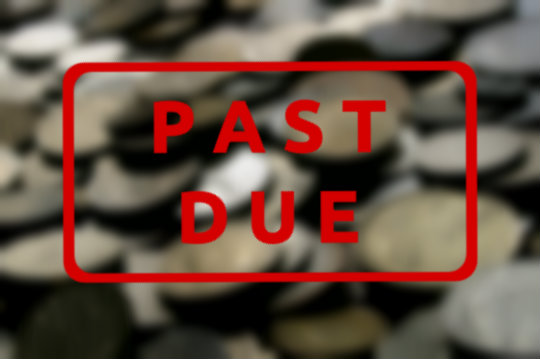
Problems don’t always start big. However, as they build over time they can turn into huge challenges that could cause the downfall of your business. In the case of late payments, most business owners don’t recognise the bearing these have on cash flow; thus, the problem ends up progressively getting worse.
Cash flow is considered as the core of business operations. When this is disrupted, all other aspects of the business either get delayed or fall over. Even if your business still receives the payment, not receiving it on time may lead to bigger problems. You are forced to adjust your budget and other financial transactions.
In bigger firms, the role of overseeing finances is carried out by a CFO. However, it’s probably not practical to hire a CFO if you are operating a small business; the cost would be out of proportion to the level of financial transactions. Nonetheless, someone on your financial team needs to have a CFO mindset. This is where a service like myCEO can fill the gap, because, amongst other things, they provide a role as a ‘virtual’ CFO.
So, let’s take a look a couple of areas you need a close eye on.
Dealing with Late Payments
To keep your business on track with payments, consider tightening your existing credit control procedures. Make sure that all these are also implemented on transactions done with new clients. All terms and conditions that you run through with clients should reiterate provisions that explain when payments must be made. Come up with legitimate consequences should your client miss a payment deadline—interest provisions.
Schedule a monthly checking of debtors’ lists. Keep this list updated and find out if certain debts are just becoming larger. This should be your cue to speak with the client involved, or to get your virtual CEO to step in.
In the case of evasive clients, you may opt to seek legal advice. Issuing a letter to confirm your next steps with said clients is also necessary. Keep them in the know to avoid further complications. Use fixed fee letters from a regulated firm of solicitors. This is usually effective, especially when it becomes urgent to explain to the client the consequences of going to court.
The power of invoicing
An invoice is a record of purchase that informs you and your client of the services and/or goods they are to pay you for. It includes details of the purchase, the type of service and/or goods provided and the quantity and price.
Your invoice ensures that your business’s cash flow is protected, your records are maintained and organised and your tax obligations met on time. It provides a steady flow of cash for your small business without having to take on further debt.
Through proper invoicing, you are informed of the deadline of payments you are to receive from each of your clients. This enables you to make plans regarding meeting your own payment deadlines and keeping up with your business plan.
Ensure your business stays on track by maintaining a good cash flow. Your virtual CFO can help you handle late payments, invoicing, budgeting and other financial aspects.
To learn more about how your business finances fare, take our Trust Assessment. You can also speak with myCEO to find out more about the role of virtual CFO.

